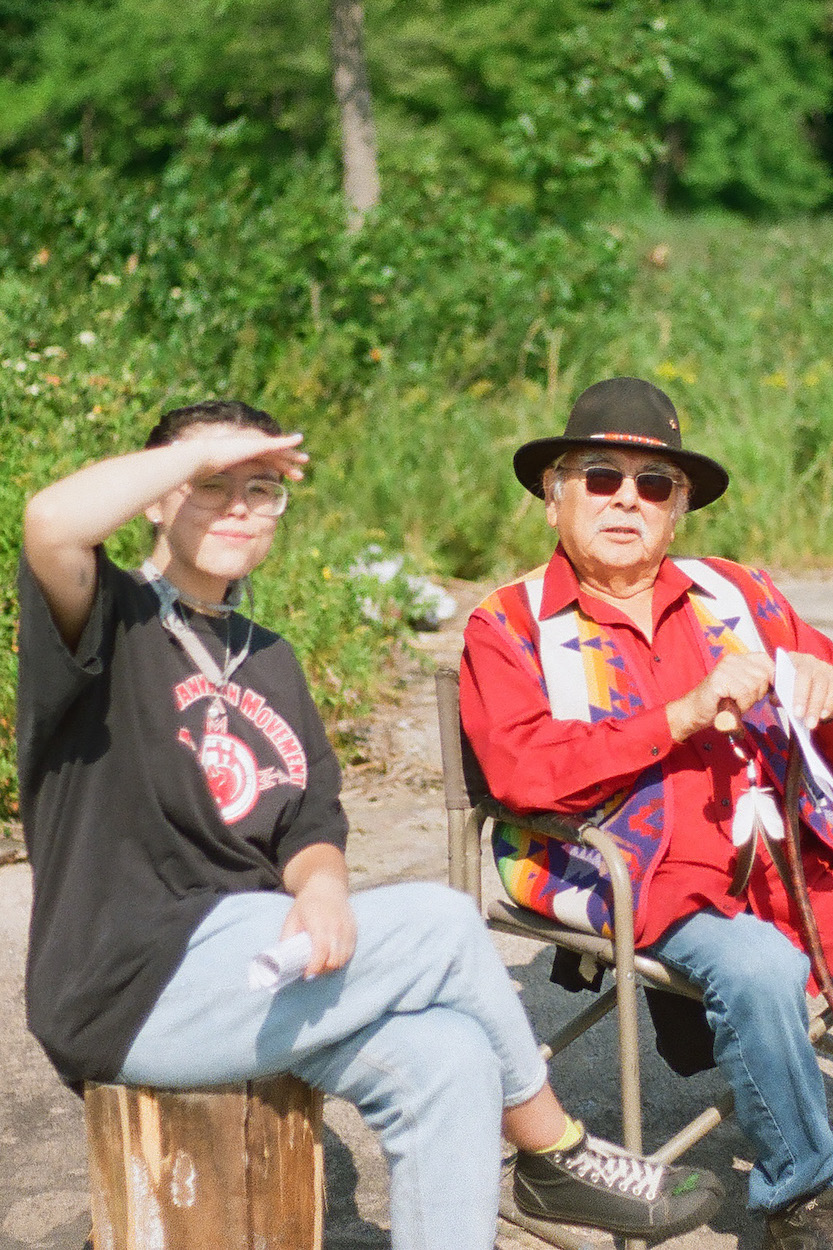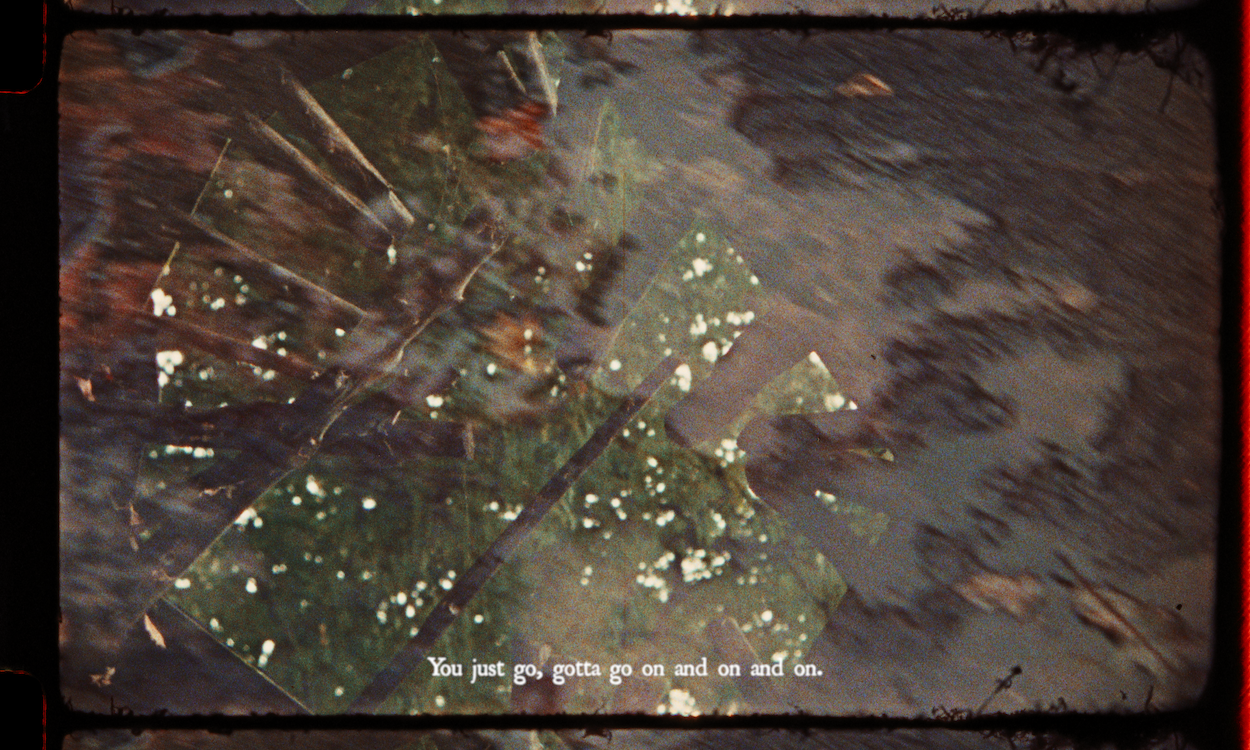
North Bay Film Festival 2024 | November 15-17

A Dream About Water by Evelyn Pakinewatik
A Dream About Water is a media installation by Indigenous filmmaker and multidisciplinary artist Evelyn Pakinewatik. Presented as part of the 2024 North Bay Film Festival, this exhibition invites viewers to reflect on memory, cyclical time, and the deep connection between humans, land, and language. Evelyn’s work aims to foster dialogue about Indigenous perspectives on storytelling, art, and environmental interconnectivity, making this exhibition a crucial highlight of the festival’s commitment to amplifying Indigenous voices. The exhibition will be open for viewing during the run of the festival at our Digital Creator North Bay space in the basement of the Capitol Centre.
We invite everyone to attend and experience this installation.
November 16th-30th, 2024
Opening: Saturday Nov 16th from 12-3pm
Hours: Friday 2pm-6pm; Saturday and Sunday 1-5pm. .
Learn more about Evelyn’s contributions to this year’s festival HERE.
Artist Statement
I’ve spent my whole life listening to and often recording interviews with different members of my family and extended community. One of the phrases I hear most often is “on and on and on” as a way to conclude a point; or to extend it. Anishinaabe often talk in circles, or maybe to be colonized is to see how obvious and frequent the repetitions actually are. The people are the land, yet artificially codified as other. How we define the categories of personhood are all inherently tied to how we define the worth of all things; the disabled body is the unproductive body is the body without worth is the anti-colonial body. All is destroyed, life continues, and it just goes on and on and on.
“A Dream About Water” centres on my film loop, “On and On and On,” which was born of the final conversation between my mother, myself, and respected Mi’kmaq Elder Albert Ward. Albert Ward did many things in his life, most of which I’ll never hear about, but I know him through many stories as my mother’s teacher. Until his death in 2021, Albert was invited into communities throughout North America to share his knowledge as a healer and Elder. “On and On and On” was filmed on the traditional ceremonial grounds of Nipissing First Nation, a place of great personal and spiritual significance for me. I do not understand Mi’kmaq and did not transcribe or translate Albert’s prayer. This was done for me through the National Film Board of Canada as a part of another project. I do not wish to share the translation. I was taught that language is something you have to listen to. One of my teachers shared that he wasn’t trying to insult anybody, but to learn the language you must become like “those little babies.” You don’t need to know it in your own language to learn about how it feels, where it goes in your body, how it stays with you, or where it takes you. I did transcribe Albert’s English parts.
The film is apocalyptic in nature and intended to encourage practical conversations about the coming paradigm shift. We are meant to be here. Our presence on the earth is not parasitic, oppression is parasitic. Fascism is parasitic. White supremacy and monopolies and capitalism and imperialism (and on and on and on) are all parasitic and in every direction. But us? We have a right to be here. More than that, we have a role within our ecosystems. We have responsibilities and we have duties and we belong here.
I often repeat myself. The world ends every day for somebody, stories are concentric, life is cyclical, Indigeneity is definitively antithetical to colonialism, we keep us safe, colonialism is a death machine and mass death was always a part of the plan, etc. Indigeneity, as I understand it, is an awareness and acceptance of one’s humanity and how it is defined existentially. We are the human beings. Those of us who are othered within the parasitic system are often those of us who are able to remember this, even if only in fragments. What makes the system parasitic and unsustainable is the rejection of that humanity, of that mortality, of those roles and responsibilities. We are meant to be here. I hope I live to see it, not because I want death or flood or fear or suffering, but because I want to know what happens after. I want to see what happens once we come home. I want to see what happens when we remember.
My mother taught me what Albert taught her; “peace will come.”
“A Dream About Water” examines ongoing societal collapse through the experience of otherness in all aspects.
 Artist Bio: Evelyn Pakinewatik
Artist Bio: Evelyn Pakinewatik
Evelyn Pakinewatik (Nbisiing Anishinaabe/Irish, Nipissing First Nation) is a queer disabled filmmaker and multidisciplinary artist specializing in painting, printmaking, textile arts, and photography. Evelyn’s work explores the intersection of dreams and memory, and the societal distortion of interiority, relationality, and animacy.
An artist raised by artists, Evelyn began working alongside their parents from a very young age to preserve and disseminate traditional textile and nature arts in Indigenous communities across Ontario and Québec. Interconnectivity and reciprocity continue to motivate Evelyn’s creative process as they seek to practice anti-colonial survivance through an inclusive lens.
Evelyn is a 2018 Reelworld E20 Fellow, 2019 4th World Media Lab Fellow, a 2020 HotDocs Doc Accelerator Fellow, and a 2021 EFM Doc Salon Fellow. Evelyn’s films have been screened at various festivals including the imagineNATIVE Film and Media Arts Festival, Māoriland Film Festival, Festival Présence Autochtone, and the Toronto Queer Film Festival. Their work has also been exhibited at the Ojibwe Cultural Foundation, Toronto City Hall, and the Bentway at Fort York. Evelyn has been invited to speak at higher learning institutions including the Ontario College of Art and Design University and Cornell University. Their most recent project is their narrative short film “Nooj Goji/Anywhere”, funded by the Indigenous Screen Office and the Canada Council for the Arts and set to begin its festival run later in 2024.
Works Featured
“On and On and On” | Film loop installation. 16mm. 09m30s. (2024) Cinematography and colour correction by Morgana McKenzie. Directed and edited by Evelyn Pakinewatik. |
“That’ll come.” | Printed voile fabric. 24” x 182”. Evelyn Pakinewatik. (2024) |

